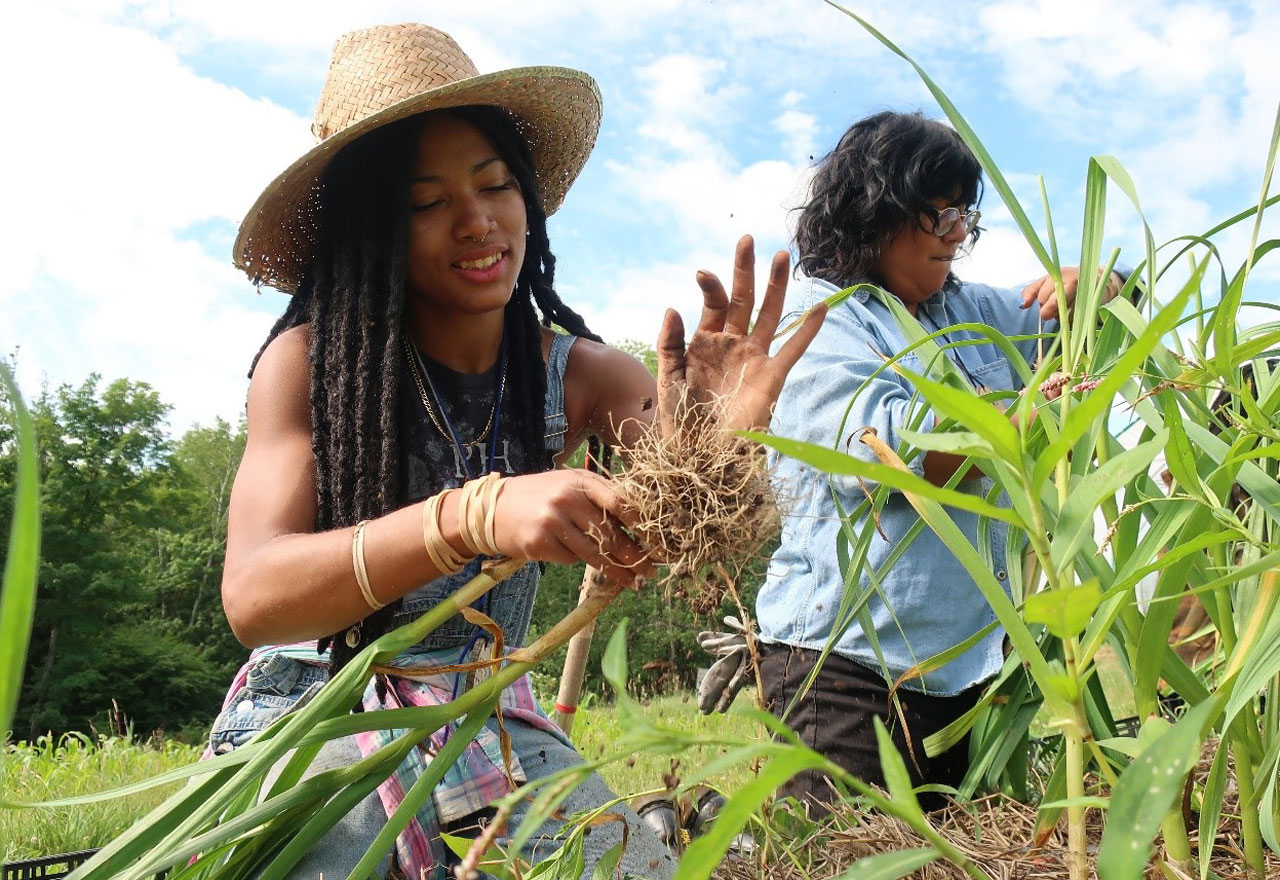Skillshare sessions connect diverse communities to hope and knowledge
[This article was previously published in the spring issue of the Cultivator, Cornucopia’s quarterly newsletter.]
By Michele Marchetti, Co-Director of Development and Communications at The Cornucopia Institute
On a Sunday evening in March, Rowen White Zoomed in from her home, remotely joining more than 150 farmers, land stewards, and collaborators to discuss food access, resilience, and the recently launched effort to send bundles of seed packets to tribal communities and families in need.
Rowen, a Seed Keeper from the Mohawk community of Akwesasne and a seed sovereignty activist, is one of dozens of featured speakers in the BIPOC Farmers Community Skillshare on COVID-19, a collaborative effort between Soul Fire Farm, Northeast Farmers of Color, Black Farmer Fund, HEAL Food Alliance, and the Castanea Fellowship.
In the months since COVID-19 created “social distancing,” Black, Indigenous, and people of color (BIPOC) from farming and food sovereignty activism communities are finding connection in these virtual Skillshare sessions.
Each gathering is an opportunity to learn from the speakers, connect with peers, and honor and acknowledge grief and anxiety by participating in ceremony or listening to a poem or prayer.
The 75 to 200 attendees convening biweekly for mutual support include farmers eager to support emergency response efforts, as well as food advocates yearning for skills and resources to help their communities and families. Topics of the Skillshare sessions range from the mind-body stress connection to land access and transition.
“The sessions are based in this idea of self-determination and cultural relevance and Black and Brown farmers and land stewards really coming together to connect and share our own bodies of knowledge—bodies of knowledge that we’ve held for generations—share innovations, and share the brilliance of how people are growing food and medicine and healing relationship with land,” says Larisa Jacobson, co-director & partnerships director of Soul Fire Farm.
The Skillshare sessions reflect a broader goal to empower and equip the next generation of BIPOC farmers and community members, strengthening a support system that was necessary before the pandemic and will continue to be so in the years ahead.
“Our food system was built on—these things sound very hard to hear sometimes—slavery, genocide, land dispossession, discrimination, forced displacement, forced migration, and the need for people to come here as immigrants and refugees and work the land under often harsh conditions,” Jacobson says. “That has not changed. It’s still very real.”
In some cases, the pandemic has further illuminated pre-existing inequity. Aspiring farmers and land stewards participating in Skillshares call out and deeply feel the divide between those who have access to land and those who don’t, reports Jacobson.
“The response to that has poured more urgency than ever into thinking how cooperatives, collectives, and BIPOC-led land trusts (such as the Northeast Farmers of Color Land Trust) can form to make it possible to be on land in the future.”
While the sessions are facilitating human connection, the organizers are hyperaware of the voices missing from the conversation. The ad hoc initiative is working with Grow NYC and the Hudson Valley Farm Hub to create resources to support those whose isolation is intensified by inequitable access to, or a lack of familiarity with, technology. The underrepresentation experienced in the virtual support groups is symptomatic of a broader problem in local food systems, she says.
“The last workshop that I led before gatherings could no longer happen was about making CSAs more accessible and inclusive for communities of color, migrant and refugee communities, communities that are not accessing the internet, and speakers of other languages,” she says. “It’s so relevant to what’s happening now.”
One of the most significant, and hopeful, outcomes of the Skillshare series is the “Food & Land Sovereignty Resource List for COVID-19,” a massive, ongoing document mapping an unfolding web of support with threads reaching nearly every corner of this country.
The document, available at soulfirefarm.org or (518) 880-9372 (Google voice), connects a web of resources across the movement. Many of the noted resources specifically benefit BIPOC-led organizations, providing opportunities for allies to offer their own resources, whether it’s time and money or land and seeds.
“So there’s that powerful potential for resource redistribution, mutual exchange, and reclaiming of land and capital to fuel some of these efforts,” Jacobson says.
For Jacobson and her colleagues, supporting their communities to survive and thrive during this time of disproportionate impact on Black, Brown, and migrant and refugee people is just part of the work—the central undertaking is figuring out how these initiatives translate to abiding change.

“This book, Farming While Black, is a reverently compiled manual for African-heritage people ready to reclaim our rightful place of dignified agency in the food system.”
—Leah Penniman


